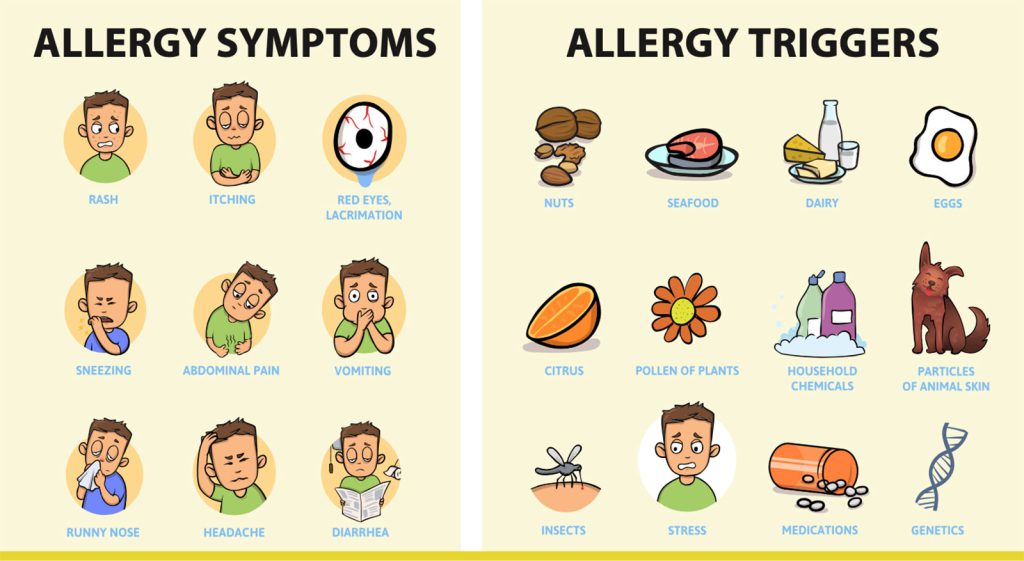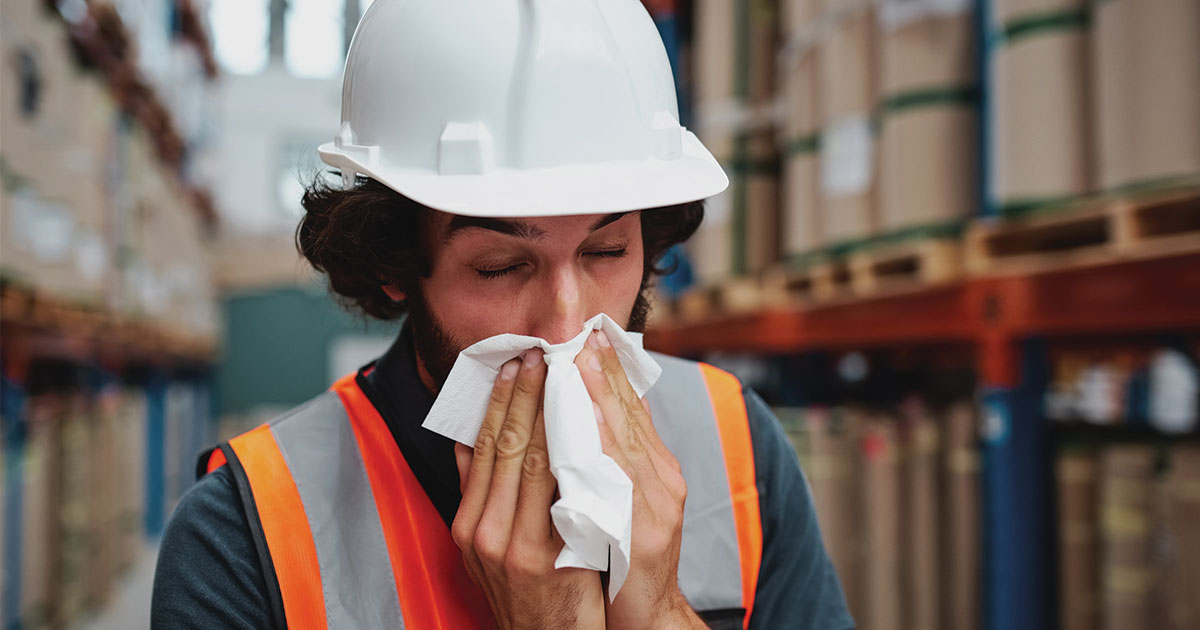Spring is in the air! And so are flower buds and blooming trees. For many, this is the season long awaited after months of cold and gloomy days. But if you are one of the millions of people who have seasonal allergies, you may be dreading the sneezing, congestion, runny nose, and itchy, watery eyes that comes with the change of seasons.
Allergic reactions occur when the body mistakenly defends itself against something that is not dangerous.1 During allergic reactions, the immune system fights harmless materials, such as pollen, with production of antibodies called immunoglobulin E (IgE).1 This increase in IgE causes the bothersome symptoms associated with seasonal allergies, also known as hay fever and allergic rhinitis.
The symptoms of seasonal allergies can make you miserable. But there are some simple things you can to do to control allergies, while still enjoying the beauty that spring has to offer.
Decrease your exposure to allergy triggers
Pollen counts are highest in the morning, and on dry, hot, windy days. These steps will reduce your exposure to the things that trigger your allergy symptoms:1 2
- Stay indoors between 5-10 a.m. Save outside activities for late afternoon or after a heavy rain.
- Avoid lawn mowing, weed pulling, and other gardening chores that stir up allergens. If you do outside work, wear a pollen mask.
- Remove clothes you’ve worn outside and shower to rinse pollen from your skin and hair.
- Don’t hang laundry outside – pollen can stick to sheets, towels, and garments.
- Don’t open windows in your house and car, use the air conditioning.
- If you have forced air heating or air conditioning in your house, use high-efficiency filters and follow regular maintenance schedules.
- Keep indoor air dry with a dehumidifier.
- Use a portable high-efficiency particulate air (HEPA) filter in your bedroom.
- Use a vacuum cleaner that has a HEPA filter.
Use extra caution when pollen counts are high:2
- Check your local TV, radio station, newspaper, or Internet for pollen forecasts and current pollen levels.
- If high pollen counts are forecasted, take allergy medications before your symptoms start.
- Close doors and windows at night or any other time when pollen counts are high.
- Avoid outdoor activity in the early morning when pollen counts are highest.

Over-the-counter remedies
Several types of nonprescription medications can help ease allergy symptoms:2
- Oral antihistamines can help relieve the symptoms of sneezing, itching, runny nose and watery eyes. Examples include loratadine (Claritin), cetirizine (Zyrtec) and fexofenadine (Allegra).
- Oral decongestants, such as pseudoephedrine (Sudafed, Afrinol, and others) can provide temporary relief from nasal stuffiness.
- Nasal decongestant sprays, such as oxymetazoline (Afrin) and phenylephrine (Neo-Synephrine), also help with nasal stuffiness. But only use nasal decongestants for a few days in a row. Longer-term use can actually worsen symptoms (rebound congestion).
- Other nasal sprays, such as Cromolyn sodium, can ease allergy symptoms without serious side effects. It’s most effective when you begin using it before symptoms start.
- Some allergy medications combine an antihistamine with a decongestant. Examples include loratadine-pseudoephedrine (Claritin-D) and fexofenadine-pseudoephedrine (Allegra-D).
- Rinsing your nasal passages with saline solution (nasal irrigation) is a quick, inexpensive and effective way to relieve nasal congestion. Rinsing directly flushes out mucus and allergens from your nose. A squeeze bottle or a neti pot – a small container with a spout designed for nasal rinsing – are available at your pharmacy or health food store. Be sure to use water that is distilled, sterile, previously boiled and cooled to make up the saline irrigation solution to avoid exposure to potentially dangerous bacteria. Also, be sure to cleanse the irrigation device appropriately after each use.1 2
When to see a healthcare provider
For many, avoiding allergens and taking over-the-counter medications is enough to ease symptoms. But if your seasonal allergies are still bothersome, it may be time to talk to your healthcare provider about other treatments that are available.
©2023HealthSpot References: (1) National Institute of Health (NIH) Medline Plus. 2013. How to control your seasonal allergies. Retrieved from https://medlineplus.gov/magazine/issues/spring13/articles/spring13pg22-23.html (2) Mayo Clinic. 2018. Seasonal allergies: Nip them in the bud. Retrieved form https://www.mayoclinic.org/diseases-conditions/hay-fever/in-depth/seasonal-allergies/art-20048343 (3) NIH National Center for Complementary and Integrative Health. 2017. Seasonal allergies and complementary health approaches: What the science says. Retrieved from https://nccih.nih.gov/health/providers/digest/allergies-science#heading1

